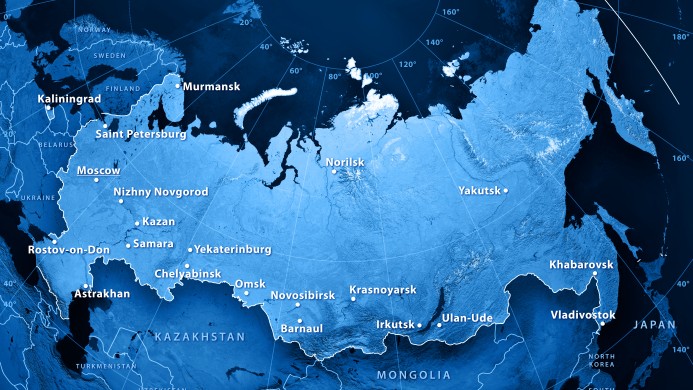Big oil, gas and coal making headway on Russian Arctic coast

Hundreds of ships loaded with construction materials shuttle to the sites of new nonrenewable energy projects.
Over the past year, ships have crowded along the coast of the Gydan Peninsula where natural gas company Novatek is developing its new Arctic LNG 2 project. Massive volumes of construction goods are needed for the building of the port terminal that ultimately will handle almost 20 million tons of liquified natural gas per year.
The shipments to the area culminated after sea-ice in the shallow bay melted this July, and up to 50 ships have lately simultaneously amassed in the waters near the Utrenny port terminal.
On the 16th of August, a total of 45 ships were located in the waters near the new seaport. In addition, another about 100 vessels were located in other parts of the Ob Bay, most of them near the Sabetta port, the Novy Port oil terminal, and the drill site of jackup rig Perro Negro 8.
There are also several dredgers in the area engaged in the deepening of local ship lanes.
Priority for Russian oil and gas industry
The Gulf of Ob and the adjacent peninsulas of Yamal and Gydan is a top priority region of Russia’s oil and gas industry. Environmentalists fear its vulnerable Arctic environment could experience irreversible damage as natural resource extractors expand into the area.
The Gulf of Ob is not the only place for an unprecedented industrial Arctic development. A bit further east, in the Taymyr Peninsula, both oilmen and coal miners are busy with the development of terminal facilities for new major projects.
Six vessels were in mid-August moored near the site where coal mining company North Star (Severnaya Zvezda) is building its Yenisey seaport. The new terminal that formerly was named Chaika will serve the Syradasaysky coal field, and is due to be ready for operations in 2023.
According to the Ministry of the Far East and Arctic, the 56 km long road that connects the terminal with the project processing plant is now about to be completed. The plant will have a production capacity of 7 million tons per year. The North Star is owned by business tycoon Roman Trotsenko and his AEON.
About 50 km south of the Chaika terminal is coming another major piece of infrastructure. Oil company Rosneft is building its Sever sea terminal that will serve the Vostok Oil project. In mid-August, at least three ships were moored on the site. It is built to be able to handle as much as 30 million tons of oil already by 2024. Only few years later, the terminal will be able to handle 100 million tons per year, company CEO Igor Sechin has informed.
New fossil fuel projects part of long-term plans
Rosneft now confirms that it has started construction of key infrastructure objects for the Vostok Oil. The company in the first half of 2021 boosted its investments by 27 percent to 428 billion rubles (€4.95 billion), of which about 50 percent is reported to be spent on the Arctic oil project, a company report reads.
The new fossil fuel projects unfolding in the Russian North are all part of the country’s development plans for the Arctic and Northern Sea Route.
By year 2024, Russia intends to boost shipments on the Arctic route to 80 million tons per year, and by 2030 – to 150 million tons.
Related stories from around the North:
Canada: Mining companies in Nunavut, Canada defend environmental management despite stiff criticism, CBC News
Finland: The Arctic Railway – Building a future or destroying a culture?, Eye on the Arctic
Greenland: Political upheaval in Greenland — What does Inuit Ataqatigiit do now?, Eye on the Arctic
Russia: Can the environment withstand Arctic Russia’s coal mining boom?, The Independent Barents Observer
Sweden: Reducing emissions could create up to 3,000 new jobs in Arctic Sweden says mining group, Radio Sweden
United States: Conservation groups sue government over Alaska mining road, The Associated Press



